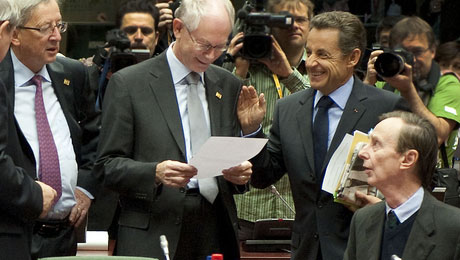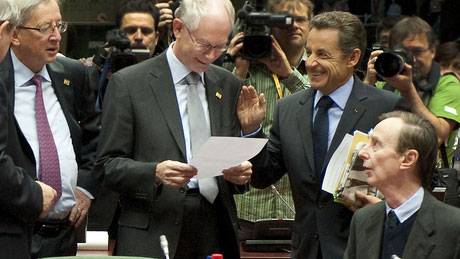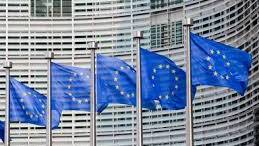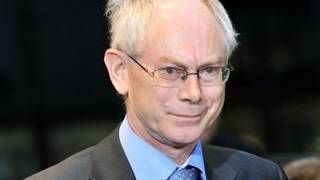Van Rompuy tipped to chair new ’economic government’
Source: euobserver.com
Twice-yearly meetings of the leaders of the 17 single currency states are to become the "cornerstone" of the new economic government of the eurozone, the leaders of France and Germany have said.In a five-page letter to European Council President Herman Van Rompuy following their meeting on Tuesday (16 August) in Paris, Nicolas Sarkozy and Angela Merkel say the summits "will take place twice a year and, if necessary, extraordinary meetings will be called."

Herman Van Rompuy (left) pictured with French president Nicolas Sarkozy (consilium.europa.eu)
The gatherings should be used to make sure the euro’s Stability Pact is being adhered to, "discuss any difficulties encountered by certain member states and take the necessary decisions to prevent crises."
The formalisation of the top-level meetings - initially opposed by Berlin - is likely to reignite debate about the merits of deepening the political gap between those sharing the euro and the 10 member states outside the eurozone.
It may also raise questions about the fragile balance of power between the European Commission and member states when it comes to overseeing economic governance, normally a prerogative of Brussels.
More of President Van Rompuy?
Van Rompuy, the former Belgian premier currently in charge of the regular meetings of all 27 leaders, is also put forward as a candidate to be the first elected "president" of the economic government on a two and a half year mandate.
"We have expressed the wish that you could assume this post," the French and German leaders wrote.
The letter, which has been criticised for putting forward long term proposals rather than tackling the eurozone debt crisis with immediate solutions, underlines that the euro is the "foundation of our economic success and the symbol of the political unification of our continent."
Among its concrete points, the letter calls on eurozone countries to ratify "by the end of the month of September" rules that would give new bond-buying powers to the euro area’s bailout fund.
The timetable, already questioned by leading German politicians, is being pushed by the European Central Bank, which stepped into the breach last week with €22 billion to buy Italian and Spanish bonds in a bid to drive down borrowing costs.
Berlin and Paris also recommend that in future countries that do not take steps to correct their excessive deficits should have funds from the EU’s structural and cohesion funds suspended.
Reactions mixed
While Germany and France presented a united front and said it is their “historic mission” to protect the euro, reactions to their emergency meeting have been mixed.
Many have expressed disappointment that there was no pledge to create a eurobond - a move to mutualise the eurozone’s debt that would lower the borrowing cost for struggling euro countries but which Germany fears will lead to a rise in the price of its own government debt.
"The two leaders have finally woken up to some good ideas, such as a tax on financial transactions. But they have ignored solutions that offer real hope, such as the introduction of eurobonds," said Martin Schulz, leader of the socialists in the European Parliament.
He condemned the idea of holding just two meetings of eurozone leaders a year as "wholly inadequate".
Guy Verhofstadt, head of the liberals in the parliament, said it was "too little too late." He added: "It is a quantum step towards a federal union that is needed if the euro is to be saved. [Tuesday’s] announcements are sadly well short of the mark."
Read the full article at: euobserver.com






















